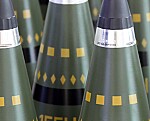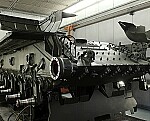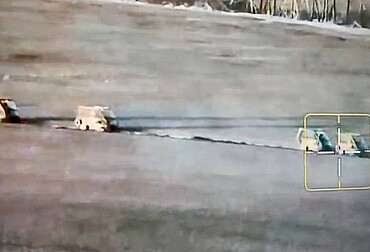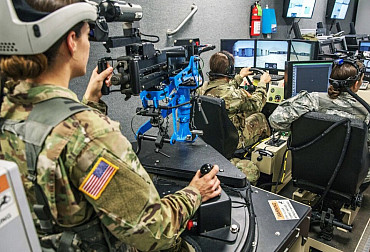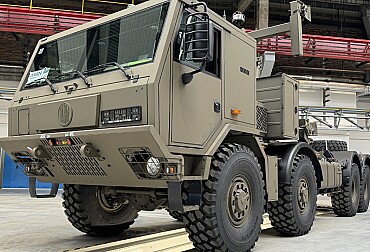Polish EU Presidency: Warsaw aims to secure €500 billion for defense budget
Poland will focus on EU defense funding during its presidency. The ongoing war in Ukraine and the possibility of an unpredictable Donald Trump returning to the White House at the end of January compel the EU to invest in its own armed forces. The European Commission, supported by Warsaw, will request €500 billion for defense spending over the next decade. The funds will be allocated under the supervision of the newly appointed EU Defense Commissioner, Andrius Kubilius, whose priorities include maintaining military aid to Kyiv and preparing for potential Russian aggression.

European countries are ramping up defense spending due to the continued Russian invasion of Ukraine and Trump’s warnings that nations spending less than 2% of GDP on defense may be abandoned. "Returning to business as usual and relying solely on the Americans is no longer feasible. Much has changed," Polish Finance Minister Andrzej Domanski stated. The EU requires a "common approach" rather than the current fragmented policies. Poland will assume the six-month rotating EU presidency in January.
The European Commission estimates that strengthening EU defense will require €500 billion or more over the next ten years. A new position of Defense Commissioner has also been established. EU finance ministers will explore potential funding models during discussions in Warsaw in April. "From my conversations with other finance ministers, there is broad agreement that Europe must do much more," Domanski added.
Russia remains the EU's most significant military threat and is expected to pose challenges for "quite some time," according to Andrius Kubilius, the first Commissioner for Defense and Space. Kubilius, a former Lithuanian prime minister, is drafting a defense white paper, set for release within his first 90 days in office. This document will outline the necessary measures for preparing the EU for extreme military scenarios, including Russian aggression against EU or NATO members.
Western intelligence agencies, including those in Germany and NATO, warn that Moscow might be planning military aggression against the EU before 2030. Commissioner Kubilius noted that Russia’s war economy can now produce more military equipment in six months than the entire stockpile of the German army. Additionally, the EU faces a long-term challenge from China's growing influence, which is prompting the U.S. to shift its focus to the Indo-Pacific and consider reducing its military presence in Europe. The EU must account for these realities, along with its reliance on U.S. military technology and intelligence, such as space-based surveillance and early warning systems.
The EU Defense Commissioner advocates a "big bang approach," keeping Ukraine at the forefront. Failing to support Kyiv could lead to "extreme military contingencies" and potentially embolden Russia to launch more intense aggression against the EU sooner. Europe is currently losing the "war of narratives," with Russian President Vladimir Putin spreading propaganda that a Ukrainian victory is unattainable. Kubilius aims to counter this narrative. He also prioritizes increasing industrial production and securing defense funding within the EU.
Large defense projects require not only financial investment but also inter-nation cooperation. Kubilius criticized the inefficiency of having 12 different tank systems across Europe, calling it "madness." He emphasized avoiding similar fragmentation in air defense systems, such as those under the German-led European Sky Shield Initiative (ESSI), Franco-Italian collaborations, and Polish-Greek plans. Ideally, these projects will merge into a unified initiative, possibly a European Air Shield, with an estimated cost of €500 billion. "We must be realistic about what we can achieve. But Ukraine has shown us that air defense is crucial," he said.
Two funding options for EU defense are being debated in Brussels. One involves using the long-term EU budget as a guarantee for loans, similar to the NextGenerationEU plan during the COVID-19 pandemic. The other entails creating a special entity to provide loans, modeled after the European Stability Mechanism. The first option faces hurdles due to the need for unanimous approval from all 27 EU countries, including Hungary, which has close ties with Moscow and may impose conditions or outright reject the proposal. Additionally, this approach limits participation to EU member states and places management under the European Commission, which may not appeal to nations with distinct defense priorities. The second option allows for broader participation, inviting countries like the UK and Norway, while leaving governance with national governments rather than the Commission. "Various solutions are being considered. It is too early to determine which one will prevail," Domanski remarked.
The European Investment Bank (EIB) is also stepping in by offering special loans for the defense industry. In the past, arms manufacturers faced difficulties securing loans due to banks associating them with socially undesirable industries under ESG (Environment, Social, Governance) guidelines. The EIB has approved new loan programs worth €15.6 billion, covering areas such as security, defense, energy supply, and flood protection. For the first time, the EIB sanctioned a €1 billion loan and guarantee program dedicated to European security and defense industries, aimed at financing investments and working capital for SMEs. This initiative strengthens supply chains across the EU.
"We are extending support to the European security and defense industry. In 2024, we have broadened the scope of projects eligible for dual-use financing. Today, we are launching a dedicated program for SMEs in the supply chains of major European companies," EIB Group President Nadia Calviño announced. She expressed confidence that investments would further increase in 2025, creating a robust pipeline of projects contributing to peace, security, and strategic autonomy. Interested companies can now contact the bank, with a dedicated "defense team" established to streamline the loan application process.
Commissioner Kubilius highlighted the need for a unified defense market with streamlined procurement and production systems. He stressed that military aggression cannot be countered by market efficiencies alone but requires tangible assets such as artillery and tanks. Currently, eight EU members spend less than NATO's 2% GDP target on defense, including Spain, Italy, and Belgium. Meeting this target would increase the EU’s defense budget by €60 billion. A hypothetical NATO target of 3% of GDP would provide an additional €200 billion.
Clear plans for the development and unification of defense are essential, alongside stable financial and material support for Ukraine. Only decisive action will demonstrate to the Kremlin that Europe stands united and ready to defend itself. "We cannot ask Putin to delay his aggression until we are prepared. Time is not on our side," the Commissioner warned. He also emphasized that such actions would signal to the U.S. that the EU is prepared to take initiative independently, and to China that the West remains resolute in defending democracy. "Ukraine’s struggle illustrates the interconnected threats posed by authoritarian regimes. Democracies must act in unity and avoid trade conflicts that Putin would exploit," Kubilius asserted.





